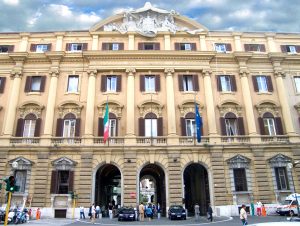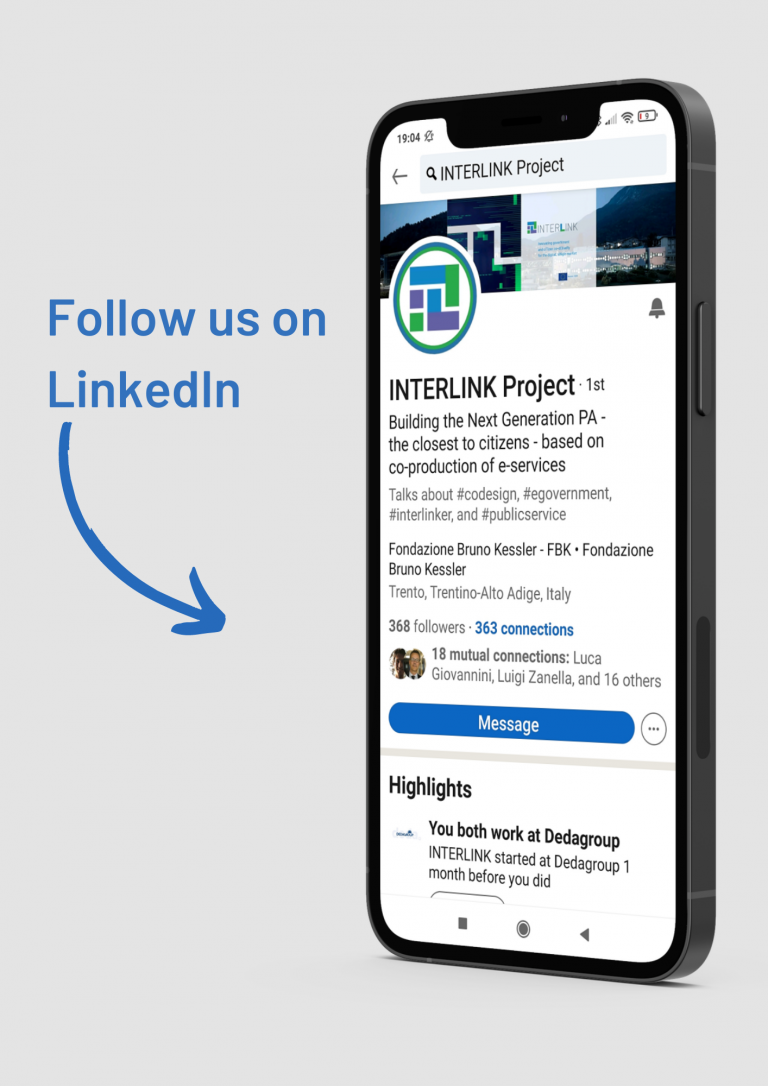Interlink project is funded by Horizon 2020, Work Programme 2018-2020, entitled Europe in a changing world – Inclusive, innovative and reflective societies. Shortly, the Societal Challenge of the Horizon 2020 programme aims at fostering a greater understanding of Europe, by providing solutions and support inclusive, innovative, and reflective European societies with an innovative public sector in a context of unprecedented transformations and growing global interdependencies.
In particular, the Interlink project applied for the Governance call, DT-GOVERNANCE-05-2018-2019-2020: New forms of delivering public goods and inclusive public services. Core concepts of this call are “to demonstrate the potential for sharing common services with different actors” and “evaluate the role, legitimacy, and responsibility of the public authorities and of the other actors delivering public goods and services in the new governance model and the related partnerships”.
The main object of the call is to empower the role of the government as a provider of tools, opportunities, guidance, and incentives for co-creation as well as a guarantor of public values over the long term in the context of the digital democracy.
Specific challenge: new approaches to deliver public services
Governance is being transformed by new approaches to delivering public services that allow for the involvement of citizens and various other actors. The challenge is to critically assess and support as needed this transformation based on an open collaboration and innovation platform supported by ICT (‘government as a platform’) and on an open
environment and ecosystem with clear frameworks and guidelines for modular services quality (‘government as a service’) in accordance with the EU eGovernment Action Plan 2016-2020 and the European Interoperability Framework Implementation Strategy. In addition, how can public-private partnerships, big data, and algorithms also reduce
- the legitimacy of public services;
- potential bias in how these services are offered when informed by algorithms and big data.
INTERLINK proposes a solution to overcome the barriers between the public administrations and all the other actors in the society, i.e. citizens, private companies, and third sectors operators, by combining a top-down approach, that ensures the legitimacy and accountability of traditional e-government approaches, and a bottom-up approach, that fosters the engagement of citizens and private organizations and co-production of public services. This goal will be
achieved through an open software platform that will combine consolidated e-government building blocks (e.g. CEF building blocks) with enablers supporting service co-production by citizens and private actors, thus enabling the “government as a platform” paradigm.
Furthermore, INTERLINK iterative validation approach will also identify early warnings of potential bias in service delivery and perceived legitimacy of service by its target users, in order to address these issues in its governance model.
Specific challenge: inclusive digital services
To deliver better (and ethical) public services, public administrations need to regroup resources together under common infrastructures at the European level that serve the needs of various actors and enable the participation of all relevant communities including elderly people, people with disabilities, and migrants. Mobile apps providing access to public services are likely to become the norm to facilitate the interaction and engagement of citizens with public administrations. In addition, to ensure a cost-efficient provision of inclusive digital services, there is a pressing need to identify gaps in accessibility solutions, to identify related good and bad practices, and to promote training, awareness-raising, and capacity building.
INTERLINK will develop a new collaborative model based on the reuse of existing digital and non-digital solutions that leverage the collaboration between public administrations and all the other private stakeholders and is compliant with all the EU regulations. INTERLINK will foster the involvement of all the different actors, facilitating co-design, co-
delivery and co-maintenance of services.
The project will also address the main obstacles that hinder the co-production of services, providing digital enablers that will allow all users groups (elderly people, migrants…) regardless of their technical expertise, to not only access common services but also participate in service co-delivery, thus making service inclusive, sustainable and ethical.





